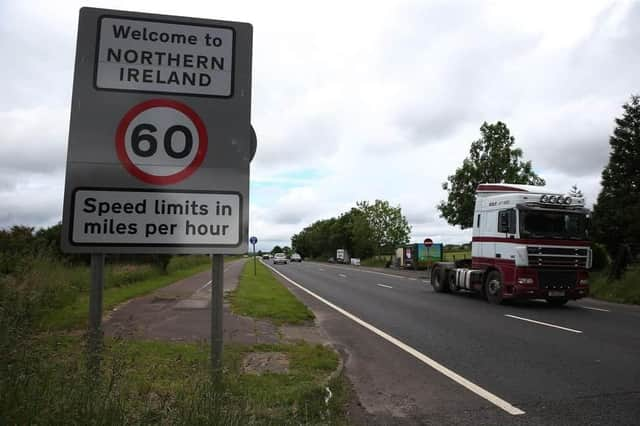Letter: The special circumstance argument regarding the border must work both ways


The two governments have been quick to congratulate themselves on achieving a return of power sharing but however welcome some of the mitigations of the Irish Sea border are the Good Friday Agreement remains breached.
A partial joint authority now exists on a seemingly permanent basis, with Northern Ireland having both British and foreign laws applied to it, with foreign courts able to have jurisdiction over only this part of the United Kingdom.
Advertisement
Hide AdAdvertisement
Hide AdIn refusing to recognise Northern Ireland as a full part of the United Kingdom, the two governments have set a new precedent as to how Northern Ireland’s constitutional position can be changed.


The legitimacy of the Irish Sea border seems to me to depend on a special circumstances argument.
If people want to make such an argument that is fine, but you cannot on the one hand say to unionists in 2016 or 2024 that we won’t currently recognise the Northern Ireland land border even though more than 50% currently believe in United Kingdom membership, but at some future point we will happily destroy the whole country so long as one vote pushes you over the line.
Republican leaders asked for Northern Ireland’s border to be disrespected in 2016 and the two governments have set that precedent in response for what will soon be approaching a decade.
Advertisement
Hide AdAdvertisement
Hide AdIf we are now to accept that NI will not be treated as a full part of the UK for the foreseeable future because of our special circumstances, can we then assume that unionists will have this same special circumstances protection applied in respect of any future moves towards Irish unity?
If there cannot be a full UK membership now then there cannot be a full Irish unification later.
This precedent means that a 50 plus 1 requirement has already been ignored, not because unionists have walked away from it but because the two governments have set a new precedent.
Perhaps 10 or 20 years from now unionists will see a silver lining to the dereliction of duty which the Boris Johnson government was guilty of.
R G McDowell, Belfast BT5